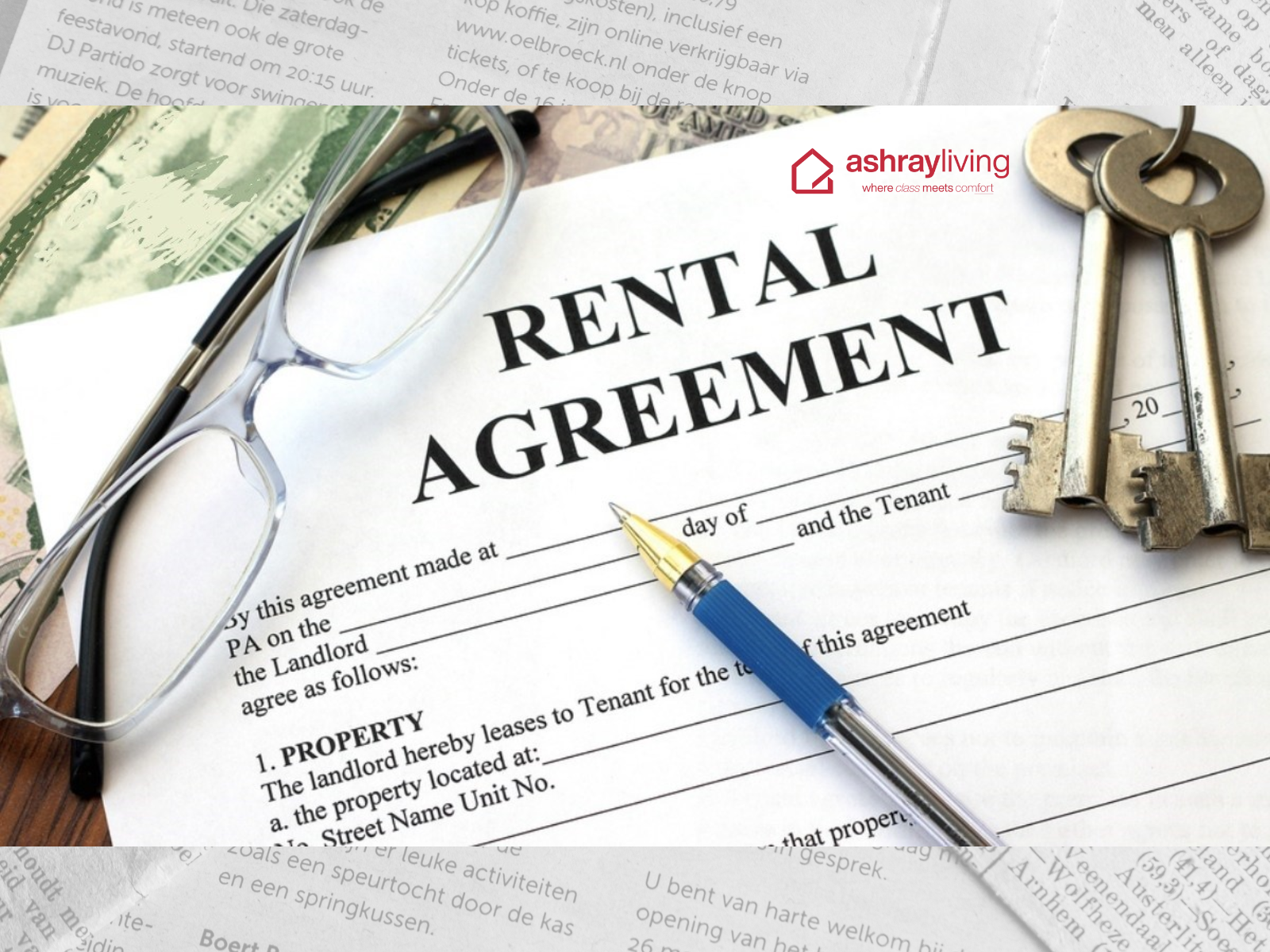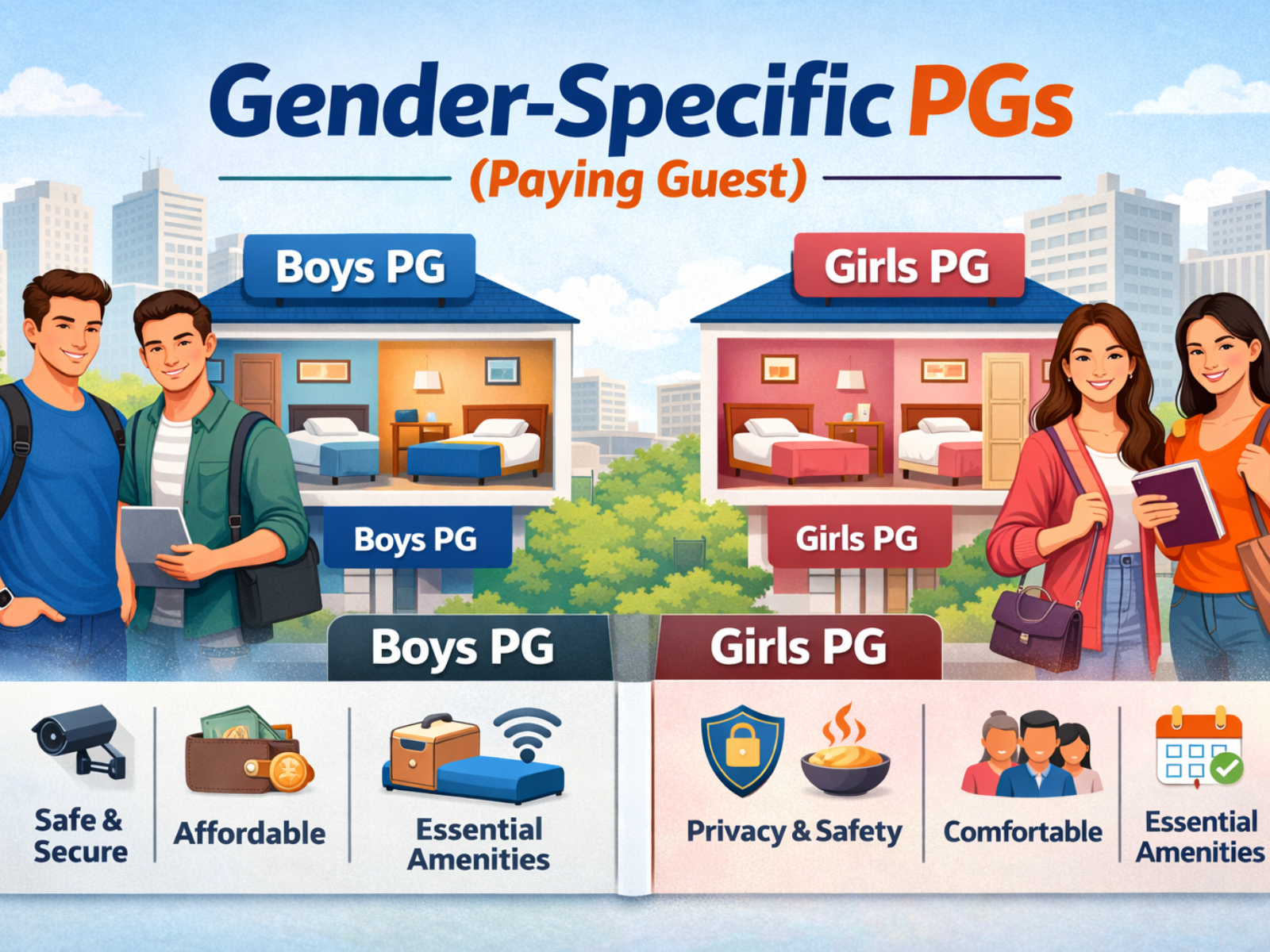
Renting a Paying Guest (PG) accommodation is a common choice for students and professionals seeking affordable and convenient living arrangements. However, signing the rental agreement without understanding its nuances can lead to disputes or unexpected costs. Here’s a comprehensive guide to ensure you don’t overlook any critical aspects while signing a house rental agreement for a PG:
Understand the Terms of Agreement
The rental agreement is a legally binding document that outlines the rights and responsibilities of both the tenant and the landlord. Carefully read and understand all the terms, including the rent amount, payment schedule, and the duration of the agreement. If anything seems unclear, seek clarification from the landlord. If necessary, consult a legal expert to review the agreement before signing.
Verify the Property Details
Ensure that the property address mentioned in the agreement matches the actual location of the PG. Check that the amenities listed, such as furniture, Wi-Fi, kitchen facilities, and parking space, are available and in good condition. Visit the property in person to verify these details and confirm the suitability of the living conditions.
Clarify the Rent and Additional Charges
Discuss and confirm the following details to avoid future misunderstandings:
- Monthly Rent: Verify if the rent amount is fixed for the entire duration or subject to periodic increases. Ensure that any potential hikes are clearly stated in the agreement.
- Security Deposit: Understand the amount required, the conditions for deductions, and the refund process upon vacating the property.
- Utility Bills: Confirm whether electricity, water, and internet bills are included in the rent or if you are expected to pay them separately.
- Maintenance Charges: Clarify if maintenance fees are covered in the rent or charged separately. Also, check if there are any other hidden costs.
Notice Period and Termination Clauses
Understand the notice period required for terminating the agreement, which is typically one to three months. Ensure that the terms are reasonable for both parties and address the following:
- Conditions for premature termination by the tenant or landlord.
- Consequences of failing to provide the stipulated notice.
- Refund policies for the security deposit in case of early termination.
Visitor and Guest Policies
Some PG accommodations have strict rules regarding visitors and overnight guests. These policies can vary significantly, so ensure that the agreement specifies:
- Whether visitors are allowed and under what conditions.
- Restrictions on overnight stays for guests.
- Penalties for violating these rules.
Repairs and Maintenance Responsibilities
Clearly define the responsibilities for repairs and maintenance. The agreement should outline:
- Whether the landlord or tenant is responsible for routine maintenance tasks like plumbing or electrical repairs.
- The procedure for reporting and addressing maintenance issues.
- The timeline for resolving such problems.
Rules Regarding Property Use
Check if there are specific restrictions or guidelines for:
- Shared spaces like kitchens, common rooms, or balconies.
- Cooking or using certain appliances.
- Noise levels and adherence to quiet hours.
- Personalizing the room with decorations or furniture.
Legal Validity of the Agreement
To ensure the agreement is legally valid:
- Verify that it is drafted on non-judicial stamp paper of appropriate value as per local laws.
- Ensure it includes signatures from both parties and witnesses, if required.
- Cross-check the landlord’s credentials and property ownership documents to avoid potential fraud.
Inventory List
Request an inventory list that details all items provided in the PG, such as furniture, appliances, and utensils. Inspect these items for damages before moving in and document their condition. This helps avoid disputes over damages or missing items when vacating the property.
Privacy and Security
Safety and privacy are paramount. Ensure the agreement mentions:
- The presence of security measures like CCTV cameras, security guards, and secure locks.
- Policies about the landlord or staff entering your room. Ideally, prior notice should be required.
- Emergency contact details for reporting security issues.
Compliance with Local Laws
Rental agreements must comply with local laws to protect tenant rights. Review the agreement to ensure:
- It adheres to rent control regulations, if applicable.
- It does not include clauses that violate tenant protection laws.
- The landlord has registered the agreement with local authorities if required.
Get Everything in Writing
Avoid verbal agreements, as they are difficult to enforce legally. Ensure that all promises, commitments, and amendments are documented in the rental agreement. This includes:
- Special requests like additional furniture or facilities.
- Changes in rent or deposit amounts.
- Agreements regarding repairs or upgrades.
Understand Penalty Clauses
Review penalty clauses for late rent payments or rule violations. These clauses should be reasonable and not excessively punitive. Discuss any concerns with the landlord and negotiate adjustments if necessary.
Conclusion
A well-drafted rental agreement is the foundation of a smooth and hassle-free stay in a PG. By carefully reviewing the terms, clarifying doubts, and ensuring compliance with local laws, you can protect yourself from potential conflicts. Remember, taking the time to scrutinize the agreement now can save you from significant challenges later, ensuring a comfortable and secure living experience.
Related Blogs








